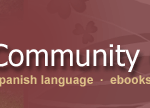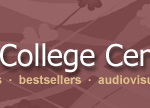|
Direct Links
online selection tools for YBP
and Baker & Taylor Customers

|
|
| Meet the Librarian |
| |

Rob Kairis |
Rob Kairis
Library Director
Stark Campus Library
Kent State University
Canton, Ohio
Rob is the Library Director at Kent State University's Stark Campus Library in Canton, Ohio. He manages all phases of the library, including automation, budget, collection development, and public and technical services. In addition, he works with faculty and staff to assess the library's needs and promote its use as a central element in the education experience of the campus.
Rob has worked at this library for eight years. Previously, he worked for Kent State University on the Kent Campus as the Systems Librarian. Rob holds a Master of Science in Library Science from the University of North Texas. His area of concentration was Academic Librarianship.
The journey that led Rob to a career in librarianship is an interesting one. While completing a Masters in Music Theory from the University of North Texas, he used the institution's career center to look for a job. He recalls, "Coincidentally, the center combined the school of music and the school of library science job announcements in one publication. As a result, in the process of looking for a job in the music field I became aware of jobs available for librarians."
He noted that in addition to there being many more library jobs than jobs for music majors, the pay was comparable. "When I realized that most music positions desired a PhD and that I could complete a library science degree in a little more than a year I decided to give it a try." He remembers that he was very candid in his interview and when asked what he liked to read, he replied, "I don't really read." This response, as it turns out, is one of the main reasons he was hired.
The Stark Campus Library is part of a larger institution with strong connections to a major research library on the Kent Campus. Rob's position comes with many resources at his disposal. He states, "I am also given a great deal of freedom and flexibility in the programs and services I am interested in introducing to our library users."
Rob has a keen interest in automation and is able to create or customize services through software development that he conceives and designs himself. He provides this example, "Our library is not able to make use of the acquisitions module of our integrated library system. As a result, the typical method of downloading MARC records from GOBI is not available to us."
Instead, Rob created programming to download GOBI records to the library's Microsoft Access database for tracking library orders. He also developed software for e-mailing orders directly from his database to YBP. He explained that each campus uses their own system to track orders. He thinks that this could change in the future if the libraries had the resources to commit to a system such as this. "Most libraries of our size do not have the in-house expertise to make these types of solutions work."
Collection development at the library is done by four professional staff members with increased input from the faculty. Rob says that they sometimes count on faculty involvement because they are the subject "experts" in their field. "We have newer faculty now and we rarely turn them down. In fact, faculty involvement used to run about 12-14% and is now over 30%."
Over the past few years, Rob says that motivating patrons has been a major concern. "We feel that our statistics for library attendance are very accurate; we have student workers physically count everyone in the library every hour we are open." The statistics have shown a gradual decrease (5-7%) in attendance over the past four years.
Last year, they introduced programs designed specifically for increasing faculty awareness of programs and services. This resulted in a slight increase in attendance last year (almost 4%). "We feel that in our environment, promoting library services to faculty and engaging in more teaching and collaborative efforts with instructors is the key to long-term success in attracting more users to our services."
When asked about the most popular materials in the library, Rob finds that most users do their research using online resources. Students at the library enjoy a wealth of information and resources available to them through OhioLINK, a consortium of Ohio's college and university libraries and the State Library of Ohio. OhioLINK offers six main electronic services: a central catalog, research databases, an electronic journal center, a digital media center, a growing collection of e-books, and an electronic theses and dissertations center.
Last year, Rob participated in the OhioLINK Road Show, which brought a number of libraries together to showcase how they use YBP's services. This road show assisted with cooperative collection development and pushed to create a better centralized collection. During Rob's presentation, he asked how many people when ordering books actually looked at OhioLINK's holdings to see if they already had those selections. He noted that about 70% of the items bought are not being used. With a centralized collection, duplication could be cut in half.
Rob thinks that one of the challenges facing institutions is the need for academic libraries to recognize the de-valuation by users of library services as a result of the proliferation of information available on the internet. Rob remarks, "Academic libraries need to work closer with faculty on concepts like Information Literacy to make their institutions and their users understand the importance of information gathering and critical thinking skills."
The library fosters this idea by becoming involved with students as they pass through two of their required courses. Under the instruction of one faculty member, students are introduced to the library and its uses. These Information Literacy classes see 30 or more sections each semester.
Since Rob did not pursue a career in music, you may wonder what has kept him motivated to work in the library field for so long. "Getting information is very satisfying for me. Knowing that someday a student that I helped will remember what I taught and how to go back and find that information gives me great satisfaction."
The Stark Campus is the largest of seven campuses associated with Kent State University and provides programs of study in business, criminal justice, nursing, psychology, and English.
You can visit Kent State University online at http://www.kent.edu/ and the library website at http://www.library.kent.edu/. To learn more about OhioLINK, please visit http://www.ohiolink.edu/.
|
|
|
|
|



